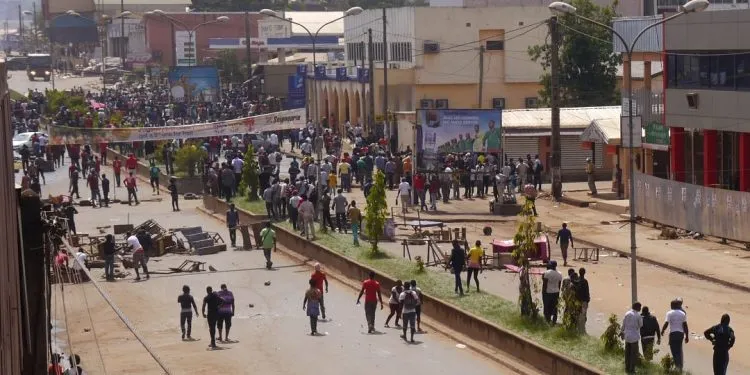A group advocating for peace and justice in Cameroon’s crisis-hit Anglophone regions has proposed a referendum for independence. This was made during the 17th session of the United Nations Forum on Minority Issues in Geneva, Switzerland.
The Alliance for Peace and Justice (APJ) in the former British Southern Cameroons took the opportunity to voice their grievances and advocate for an autonomous governance model. The International Communities Organisation (ICO) facilitated this. The ICO fosters peace, reconciliation, and the participation of minority groups in resolving conflicts on a global scale.
Call for Limited Autonomy and Independence by 2030
During the forum, APJ outlined its vision for a peaceful resolution to the Anglophone crisis. “The exclusion of our voices in the predominantly French country has resulted in a senseless war that continues to wreak havoc even as I speak,” said Januarus Asongu, representing the group.
APJ further proposed a framework granting limited autonomy to the Anglophone regions, culminating in an independence referendum by 2030. The group emphasized that the UN forum was a “critical platform, providing us the opportunity to share these grievances and our vision for peace.”
Vision for Governance and Local Autonomy
The Alliance, however, envisions a self-governing region. This is such that the Anglophone regions of Cameroon would manage local governance, education, economic development, healthcare, and policing. They called on the United Nations to support their vision for a peaceful and inclusive resolution that respects the identity and rights of the Anglophone population.
“The Alliance for Peace and Justice is proposing an autonomy model that would address our grievances, protect former combatants, and provide a framework for a referendum on independence by 2030,” APJ representatives stated.
Highlighting the Anglophone Crisis
The Anglophone crisis began in 2016, initially as peaceful protests against perceived marginalisation in Cameroon’s public sphere. According to APJ, the government’s failure to address these concerns further escalated the situation into an armed conflict, now described as a “fratricidal war.”
The group criticized the government’s introduction of a “special status” for the Anglophone regions, arguing it failed to resolve grievances. “Thousands continue to perish, and the measures have done little to address the people’s demands,” they added.
The armed conflict between separatist groups and government forces has devastated Cameroon’s Northwest and Southwest regions. Human rights organisations report that the conflict has internally displaced over 700,000 people, and thousands more have fled the country as refugees.
Infrastructure damage has been severe, with schools and healthcare facilities destroyed, depriving children of education and limiting access to essential services. The population continues to suffer amid ongoing violence and instability.
APJ’s Call
APJ’s appeal to the UN reflects the need for international support in addressing the long-standing Anglophone crisis. Their proposed roadmap seeks to foster peace, protect vulnerable populations, and offer a path to self-determination by 2030.
The Alliance for Peace and Justice amplifies the voices of Cameroon’s Anglophone population through their efforts at the UN Forum on Minority Issues, ensuring their grievances receive the attention they deserve.
However, the question at hand is whether we can expect much from this call. Recently, some people have advised Anglophones to stop relying on the international community.



